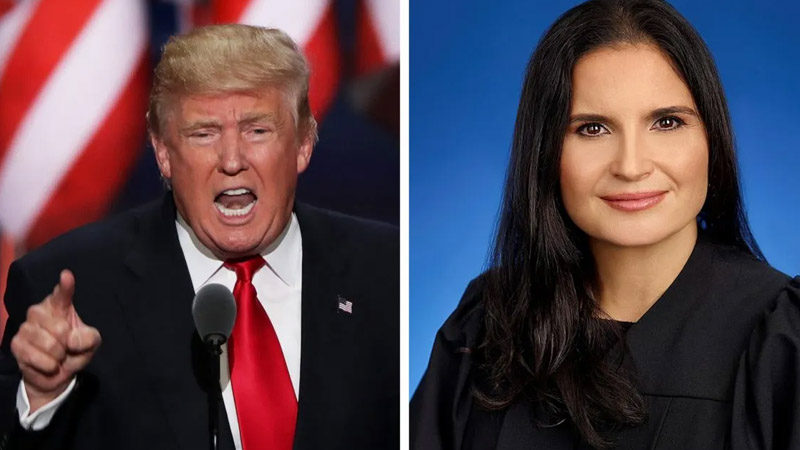In the unfolding legal drama surrounding Donald Trump and his handling of presidential documents, a recent decision by the judge presiding over the case has sparked a wave of concern among seasoned legal analysts. The case, which has captured national attention, centers on the trove of documents found at Trump’s Mar-a-Lago estate, with allegations suggesting that these materials were improperly retained by the former president.
Judge Aileen Cannon, who is at the helm of this high-profile case, recently made headlines with her declaration to entertain Trump’s defense. According to Salon, Cannon expressed her willingness to consider the argument posited by Trump’s legal team—that the former president had the prerogative under the Presidential Records Act to determine which presidential documents he could retain post-tenure.
This stance by Cannon has been interpreted by some legal professionals as a foreboding indication of the case’s trajectory, raising eyebrows and fueling debates within legal circles. The contention revolves around the classification and handling of sensitive documents, a subject that has traditionally been bound by strict protocols to safeguard national security.
Trump’s defense hinges on a broad interpretation of the Presidential Records Act, suggesting that it afforded him considerable latitude in deciding the fate of documents from his presidency. This argument, however, is not without its detractors. Critics argue that such a reading of the law could set a precarious precedent, potentially undermining the established frameworks that govern the handling of classified and sensitive materials, according to The Washington Post.
“What’s most troubling about Cannon entertaining Trump’s Presidential Records Act argument is that she’s SEEN all the records now, during the Sec. 4 hearing. She knows they are all highly classified intel products. And yet she’s still entertaining this ‘personal’ record BS,” the account wrote on Wednesday. “At least during the search warrant litigation, she hadn’t seen them, & there were some personal or some potentially borderline unclassified records caught up in the FBI search. So one can maybe give her a break there. But now, there’s just no excuse. She knows the reality.”
Adding to the controversy, an account known as Secrets and Laws, purportedly run by an individual with a background in CIA legal affairs, spotlighted what they deem to be the most disconcerting aspect of Judge Cannon’s decision. While the specifics of this concern were not detailed in the initial report, the implication is clear: there exists a deep-seated apprehension about the implications of Cannon’s openness to Trump’s legal arguments.
“If Trump wants to put on a defense that he thought the PRA made his retention of these highly classified records lawful, that’s fine — she should let him, and Tom Fitton can be his star witness. But going beyond that just gets into crazy town.”
This development in the Trump documents case exemplifies the complex interplay between law, presidential authority, and national security. As legal experts parse through the nuances of the case and Judge Cannon’s recent decision, the broader implications for presidential conduct and the safeguarding of the nation’s secrets remain at the forefront of this legal saga. The unfolding events underscore the challenges and responsibilities inherent in adjudicating matters that touch upon the highest echelons of political power and the delicate balance of national security interests.



